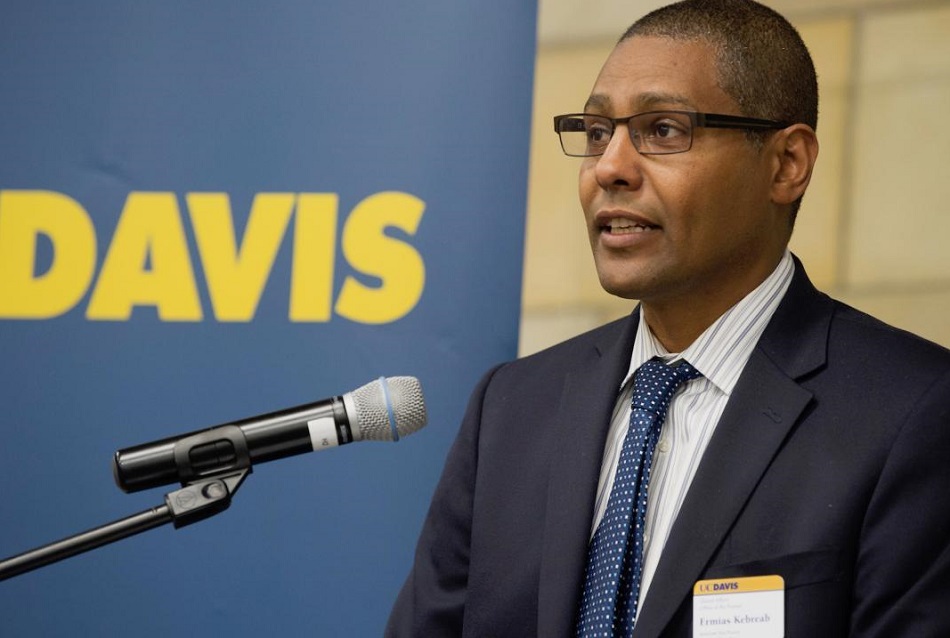Ermias Kebreab: the livestock sector can be part of the solution to the climate crisis

Livestock can be part of the solution to the climate crisis. But how can we improve the whole sector and reduce GHG emissions? Where are the main opportunities in implementing climate change mitigation, for example, through cattle management? We have spoken about these “hot” topics with Ermias Kebreab, associate dean for global engagement in the College of Agricultural and Environmental Sciences at UC Davis, director of the World Food Center, and renowned international expert in sustainable agriculture and animal science.
Professor Kebreab, how can we increase the mitigation of greenhouse gas emissions?
To try to increase the mitigation, we need to have some specific things. One is government co-financing, that is making sure that the governments are helping with the mitigation efforts. Sometimes, involving independent bodies and governments for research is much better. So, the data from it is independent of any private organization.
Where do the main carbon reduction opportunities stand?
Currently, the biggest opportunities are crops, soils, and enteric methane emissions. So, in enteric methane emissions, because most of the emissions from cattle, from ruminants, is in the form of methane, and if we can capture and reduce that, then I think there’s a lot of opportunitiedd there. Also, methane is much more impactful when it comes to the climate and the effect on the temperature of the Earth. So, reducing methane and capturing methane or ensuring that we have a sustainable and permanent reduction, because the issue we have with crops and soils is that sometimes the reductions may not be permanent or maybe they can be for a few years. If things change, then that carbon will come up. But with livestock, it’s different because those reductions are permanent, and it’s quite straightforward to show that there’s a permanency there. So there’s a lot more opportunity for the credibility of the production of those emissions.
How can we achieve this goal and implement all this?
We need to have a way to account for the credibility of those reductions and ensure environmental integrity, and the way to do that is to develop protocols. Those protocols have to be very open to the public. First, they have to be developed with input from scientists – independent scientists that do not have any role in producing feed additives or anything like that. So, using studies published in peer-reviewed journals, we will have to make sure that this is a credible science-based protocol, and we use that protocol to estimate the reductions and then the carbon credits.
What is the regulatory situation nowadays globally?
I think the regulatory markets seem to be expanding slightly right now. There’s not much regulation or compliance, you only see it in California or Europe. I think also Australia and Canada but not much beyond that. A lot of it is voluntary reductions at the moment. But the compliance market is coming up. I think people are watching what’s happening in other jurisdictions, and then I think politicians will have more appetite once they see how it’s working. And in New Zealand, they were going to come up very soon. In terms of the regulatory framework to reduce emissions, I think other governments will probably follow. Still, it’s only in a very limited number of places, like States in the US and then a few countries worldwide.
Is there a large potential for climate change mitigation for livestock?
Yes, absolutely. Livestock production will always have an environmental impact just as you would with the production of crops. Still, I think we can hope to reduce, and we have the tools now to reduce emissions substantially. There’s a lot of interest in doing that, and much work has already been done. We can harness all this energy and these efforts (made and still to be made) to help mitigate the climate impacts and reduce emissions. In the next five to ten years, I expect a 30 to 50% reduction in emissions from livestock. That’s what I believe because the work done so far is phenomenal, and we have tools to help us reduce emissions by well over 30% right now.